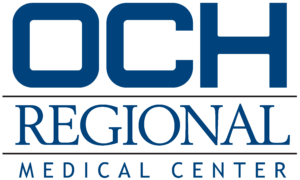Gastroenterology
The medical specialty called gastroenterology covers a lot of territory. Everything from swallowing problems to colon problems falls under the care of a gastroenterologist.
These medical specialists treat all types of digestive diseases, including those affecting the esophagus, stomach, intestines, bowels, liver, pancreas, and gallbladder.
Click here for a list of staff gastroenterologists.
The following lists some of the more common diagnostic procedures performed and conditions treated by the gastroenterologist at OCH Regional Medical Center:
Gastro-Esophageal Reflux Disease (GERD) - This common and uncomfortable problem is caused by stomach acid backing into the esophagus. This causes a painful burning sensation in the chest after eating. Most of the time GERD can be treated by changing eating and other lifestyle habits. Sometimes medication is necessary and on, rare occasions, surgery is required to correct the problem.
Upper GI Endoscopy - This diagnostic procedure examines the upper gastrointestinal (GI) tract, which includes the esophagus, stomach and duodenum (the first part of the small intestine). It is useful to diagnose and sometimes treat problems such as ulcers, gastritis, growths, causes of bleeding or pain and cancer. It may be used to take a biopsy, remove foreign objects or growths, stop bleeding and open narrowed passages.
Irritable Bowel Syndrome (IBS) - This problem does not involve any structural problem or disease in the bowel. Instead, the bowels natural rhythm called motility, is disrupted, resulting in diarrhea, abdominal cramps, constipation and gas. IBS is usually caused by an outside factor such as stress, lactose intolerance, poor eating habits, caffeine, smoking and alcohol. Treatment may include medication along with diet and lifestyle changes.
Lower GI Endoscopy - This diagnostic procedure examines the lower gastrointestinal (GI) tract, which includes the colon and rectum. A colonoscopy examines the entire colon and rectum, whereas, sigmoidoscopy examines just the rectum and sigmoid colon. These tests help to diagnose and sometimes treat problems such as inflammation of the colon (colitis), polyps, bleeding and cancer. They may be used to take biopsies, remove polyps, identify causes of bleeding or pain and detect cancer.
Diverticulosis and Diverticulitis - These somewhat common problems affect the colon. In diverticuolosis, small pouches - which are usually caused by not eating enough high-fiber, unprocessed food-form on the colon wall. When these pouches become inflamed or infected the painful, more serious problem known as diverticulitis develops. Diverticulosis is best controlled through diet. The more serious diverticulitis requires medications, a hospital stay, and, in severe cases, surgery.
Inflammatory Bowel Disease - This chronic condition may take two forms: ulcerative colitis or Crohn's disease. Ulcerative colitis often starts with inflammation and small sores that affect the lining of these areas. Crohn's disease can occur anywhere in the gastrointestinal system; however, in most cases it affects the last part of the small intestine, causing inflammation, sores, infections, and other problems. Medication, diet and, many times, surgery are required to control these chronic conditions.
21
Medical Specialities
13
OCH Clinics
300+
Doctors & Nurses
40,000+
Babies Delivered
Recent News
New Grade for spring 2025 is a national recognition for commitment to patient safety Starkville, […]
[ More ]STARKVILLE, MS (April 18, 2025) – OCH Regional Medical Center (OCH) is committed to protecting […]
[ More ]OCH Regional Medical Center will officially go live with its new electronic medical record (EMR) system on Monday, January 27, 2025.
[ More ]